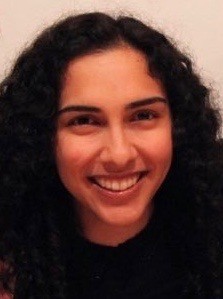Curating Humanity’s Heritage

Pegah Nabili
Department of Biology
Lake Forest College
Lake Forest, IL 60045
All aspects of an animal’s life can be deduced from where it moves: itsWe live in an increasingly polarized society, with dichotomies being thrown at us in all arenas of life. One such dichotomy that exists is the usage of Western science or traditional knowledge in order to solve our world’s problems. Traditional knowledge and methods that have been employed by indigenous populations are often labeled as primitive, ineffective and inconsequential. Cultural anthropologist Elizabeth Lindsey raises the issue of the dismissal of indigenous wisdom in the realm of science in a TED talk titled, “Curating Humanity’s Heritage”. She believes that indigenous elders have great contributions that are being lost as they pass away. In her popular TED talk, she asserts that “The wisdom of elders isn’t collection of stories, it is part of collective narrative, humanity’s DNA and we cant afford to lose it”. She believes the methods and principles that drove scientific thinking in the indigenous tribes are no longer valued, which has resulted in a “society bloated with data, but starved for wisdom”. She is working to preserve their stories and methods, so that the future generations can benefit.
Lindsey is personally connected to the topic- she is the descendant of Polynesian navigators, who observed and synthesized patterns in nature. She praises the navigators’ uncanny ability to forecast the weather. They would sequence and observe direction of waves, the flight patterns of birds and clouds in order to help them navigate. One method she recounts is the usage of the hull of canoes to feel the rhythm and sequence of waves. She refers to this as a method of gathering data, and is aware that other scientists may view this as ineffective and inaccurate. She responds saying, “Science may dismiss the method but Polynesian navigators use it because it provides them an accurate determination of the angle and direction of the vessel”.

Lindsey is not the sole voice campaigning for the retention and perpetuation of the methods of indigenous people for science. Gloria Snively and John Corsiglia, in their publication “Discovering Indigenous Science: Implications for Science Education” support the thought that indigenous wisdom in science is not a haphazard collection of information. Snively and Corsiglia proposed a model called the Traditional Ecological Knowledge paradigm (Figure 1) which shows theoretically how traditional methods can lead to the resolution of global ecological issues. There are two components to this paradigm: methodology and wisdom. Like Lindsey, they emphasize the importance of certain values that guide the research and methodology of obtaining knowledge; values such as respect and ethics. By using methods that are guided by wisdom, they claim the result is a “local cultural perspective” that results in “long-term sustainable activities” and “has implications for solving global environmental problems”.
Currently, there are active efforts made by “traditional” scientists to progress using traditional methods. One example is Dr. Paul Alan Cox, a researcher from – who focuses on finding cures for neurodegenerative diseases from natural source through consultation and observation of indigenous populations. He observed healers in Samoa using plants to cure hepatitis, and learned from the Chamorro people in Guam, that exposure to β-N-methylamino-l-alanine (BMAA) can trigger pathological markers of Alzheimer’s disease such as amyloid plaques and neurofibrillary tangles. Dr. Cox has tried to ensure that the knowledge of these people he learned from is not exploited, by giving them due credit and rights. For those like Lindsey who are heartbroken over the prospect that their people’s contribution could be lost, this example of a new direction and interdisciplinary approach brings hope. Lindsey says, “Every man for himself is unsustainable”, and so it is necessary to be able to come together and collaborate with different modes of knowledge to fix our worlds problems; whether it is ecological, environmental, or medical.
Note: Eukaryon is published by students at Lake Forest College, who are solely responsible for its content. The views expressed in Eukaryon do not necessarily reflect those of the College.
References
Lindsey, E. (2010, December). Curating humanity’s heritage. Retrieved June 30, 2016, from https://www.ted.com/talks/elizabeth_lindsey_curating_humanity_s_heritage